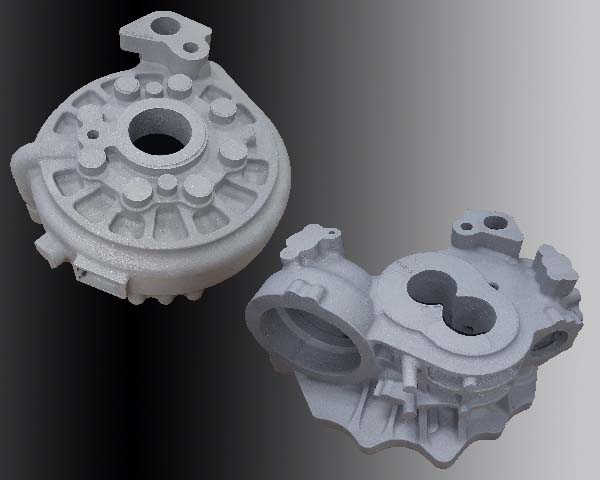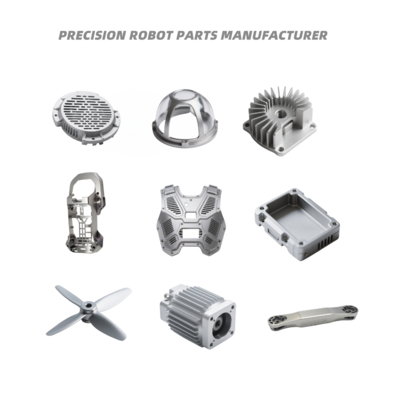Exploring Aluminum Foundry operations that maintain top-tier casting results
Checking out the Function of Factory Solutions in Progressing Modern Design Solutions
Shop solutions are important in shaping modern-day engineering solutions - Aluminum Casting Company. They bridge the space between standard production techniques and the needs of contemporary sectors. With improvements in automation and sustainability, foundries are progressing to satisfy the requirements of industries such as aerospace and automotive. This improvement questions about the implications for products, procedures, and future innovations. What possibilities and difficulties lie in advance for foundry solutions in this quickly altering landscape?
The Evolution of Shop Solutions in Design

The combination of computer-aided design (CAD) and simulation software has actually revolutionized the layout and production processes, enabling foundries to generate intricate geometries with greater precision. In addition, the shift in the direction of environment-friendly methods has caused the fostering of greener modern technologies and reusing initiatives within factories. As industries increasingly focus on personalization and rapid prototyping, shop services have actually increased their capacities, ensuring they stay important factors to the engineering landscape. This evolution underscores the factory's crucial function in supporting innovations throughout different sectors, consisting of automotive, aerospace, and energy.
Key Processes and Strategies in Modern Foundries
Modern foundries use a variety of key processes and methods that boost the performance and quality of steel spreading. Amongst these, sand spreading stays prevalent as a result of its convenience and cost-effectiveness. Using advanced innovations, such as computer-aided design (CAD) and computer-aided manufacturing (CAMERA), enables specific modeling and production, guaranteeing high precision in component dimensions. Furthermore, financial investment casting is favored for generating complex geometries with excellent surface area finishes.
Moreover, automation and robotics enhance manufacturing rate and uniformity while reducing labor costs. Methods like additive production are progressively integrated to generate detailed molds and cores, thereby lessening product waste. The application of thermal analysis aids in enhancing spreading processes by predicting and regulating solidification actions. Collectively, these procedures and techniques exhibit exactly how contemporary factories are adjusting to fulfill the needs of contemporary engineering obstacles, ensuring exceptional product high quality and functional performance.
The Significance of Materials Selection in Factory Solutions
Picking the suitable products is vital in shop services, as it straight affects the mechanical residential properties, durability, and overall efficiency of the end product. Various products possess special qualities, such as tensile toughness, rust resistance, and thermal stability, which must align with the intended application of the cast elements. For example, metals like aluminum and steel are commonly selected for their strength-to-weight proportion, while alloys can boost specific performance attributes.
Furthermore, the option procedure includes considering variables such as manufacturability, availability, and price, which can notably affect job timelines and budget plans. Furthermore, advancements in product science allow the development of innovative composites and specialized alloys that cater to emerging design obstacles. A comprehensive understanding of material residential or commercial properties and their implications is important for designers and foundry specialists to attain effective outcomes in their projects. This mindful choice process inevitably improves the dependability and efficiency of completion items.
Factory Solutions in Aerospace and Automotive Applications
Shop solutions play an important duty in the aerospace and vehicle industries, where precision and efficiency are paramount. These industries count greatly on the production of complicated elements that have to meet strenuous high quality criteria and hold up against extreme problems. Foundries supply vital services such as casting, machining, and finishing, guaranteeing components are light-weight yet durable, crucial for boosting fuel efficiency and safety.
In aerospace, foundry solutions add to the production of wind turbine blades, engine components, and structural components, every one of which demand elaborate styles and high-performance products. In the vehicle industry, foundries provide engine blocks, framework elements, and transmission situations, concentrating on resilience and weight reduction.
Advanced factory techniques, including additive production and precision spreading, are increasingly used to meet the specific needs of these sectors. By offering tailored services, factory services assist drive technology and keep affordable advantages in the fast-evolving aerospace and automobile landscapes.
Advancements Driven by Shop Capabilities
Numerous innovations in design are sustained by the innovative capabilities of factory solutions. These services allow the production of complex geometries and high-performance products that are crucial for modern applications. Additive production, commonly understood as 3D printing, has seen significant developments via factory methods, enabling for the quick prototyping of detailed designs. Additionally, the capability to cast light-weight alloys has actually changed industries such as aerospace and automobile, causing improved gas performance and performance.
Moreover, factories are increasingly incorporating smart innovations, such as automation and information analytics, to boost manufacturing efficiency and high quality control. These technologies not only lower waste but likewise make it possible for customization at scale, fulfilling the particular needs of clients. By leveraging sophisticated factory abilities, engineers can discover new frontiers in product layout and capability, eventually driving progress across different fields and developing a structure for future innovations.
Future Patterns in Foundry Providers and Engineering Solutions
The future of factory services is shaped by emerging trends such as sustainable manufacturing practices, which focus on environmental obligation. Automation and clever innovations are readied to improve performance and accuracy, while increasing modification and versatility will satisfy the evolving needs of clients. As these patterns evolve, they will redefine the landscape of engineering remedies in the factory sector.
Sustainable Production Practices
As markets significantly focus on ecological obligation, lasting manufacturing techniques within foundry solutions are becoming vital to contemporary engineering options. These techniques concentrate on decreasing waste, decreasing energy consumption, and using environment-friendly products throughout the manufacturing process. By executing techniques such as reusing scrap metal and maximizing melting processes, shops can notably decrease their carbon footprint. In addition, the fostering of life process assessments permits suppliers to assess the ecological impact of their products from inception to disposal. Teaming up with providers committed to sustainability further enhances the effectiveness of these campaigns. Eventually, welcoming lasting manufacturing not just straightens with international ecological goals yet additionally promotes technology and competitiveness in the rapidly progressing design landscape.
Automation and Smart Technologies
While lots of industries are accepting technical innovations, shop services are experiencing a substantial improvement through automation and smart innovations. The integration of robotics and automated systems enhances production efficiency, decreases human error, and increases the production procedure. Smart innovations, such as IoT and AI, enable real-time surveillance and anticipating upkeep, which maximize functional efficiency and lessen downtime. These developments facilitate data-driven decision-making, allowing factories to respond quickly to market check this site out demands and improve item top quality. Furthermore, automation reduces labor prices and boosts work environment safety by handling harmful jobs. As factory solutions remain to embrace these innovations, they are positioned to redefine engineering services, bring about raised competitiveness and sustainability in the manufacturing market.
Personalization and Flexibility Fads
Emerging trends in factory services increasingly highlight customization and adaptability to fulfill one-of-a-kind consumer demands. This change reflects a more comprehensive need for customized engineering remedies that adapt to specific job requirements and industry requirements. Firms are buying sophisticated modern technologies, such as additive production and electronic modeling, allowing them to generate tailored elements efficiently and cost-effectively. Because of this, foundries are moving far from one-size-fits-all strategies, supplying customers the capability to customize designs and materials in real-time. In addition, cooperation in between design groups and foundry services is coming to be extra incorporated, promoting innovation and accelerating time-to-market. This fad not just boosts item performance but additionally supports sustainability by lessening waste through accurate manufacturing procedures.
Regularly Asked Questions
What Are the Common Prices Related To Foundry Services?
Normal expenses linked with foundry services include product expenditures, labor costs, equipment usage fees, and expenses prices - Aluminum Casting Company. These expenditures can vary extensively based on task complexity, quantity, and details demands of the design solution entailed
For how long Does the Shop Refine Usually Take?
The factory procedure normally takes anywhere from numerous weeks to a few months, depending upon elements such as intricacy, material needs, and manufacturing volume, which can significantly affect timelines and general task delivery.
What Industries Advantage The Majority Of From Foundry Providers?
Industries such as auto, aerospace, and building benefit substantially from foundry solutions. These fields depend on accuracy spreading and steel construction to create intricate parts, boosting product performance and functional performance in their corresponding applications.
What Qualifications Should Shops Possess?
Foundries need to have accreditations such as ISO this post 9001 for high quality administration, ISO 14001 for ecological administration, and specific industry qualifications like AS9100 for aerospace or IATF 16949 for auto, making certain conformity and quality control.
Exactly How Do Foundries Make Sure Quality Control in Their Processes?

Factory solutions are necessary in shaping modern design solutions. As design self-controls have actually advanced, the function of factory services has transformed considerably to fulfill advancing market demands. As industries significantly prioritize customization and fast prototyping, foundry solutions have expanded their capacities, guaranteeing they remain crucial contributors to the engineering landscape. As sectors progressively focus on ecological duty, lasting production practices within factory solutions are ending up being essential to modern engineering services. Additionally, cooperation between engineering groups and factory services find out this here is ending up being a lot more incorporated, fostering innovation and speeding up time-to-market.